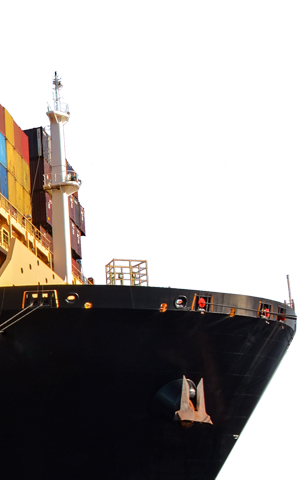Finding Sustainability Opportunities in Your Supply Chain
- Home
- >
- Cargo Blog
- >
- Finding Sustainability Opportunities in Your Supply Chain
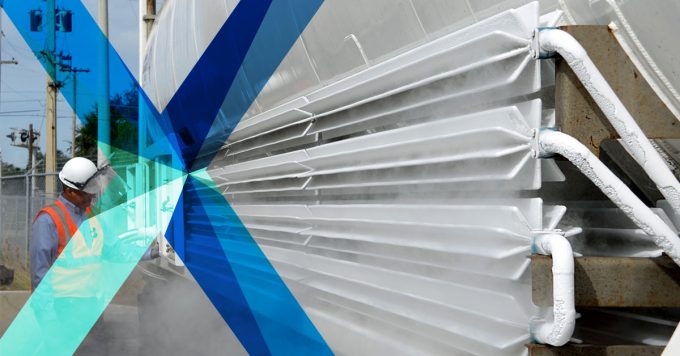
Consumer trends are driving big changes in the way retailers do business today – from next day delivery to the shopping experience.
Retailers are also prioritizing sustainability.
A recent study by IBM found nearly 60 percent of consumers surveyed are willing to change their shopping habits to reduce environmental impact. These purpose-driven consumers purchase from brands that align with their values and lifestyle. For apparel and footwear brands – this group of consumers represents 35 percent of the market.
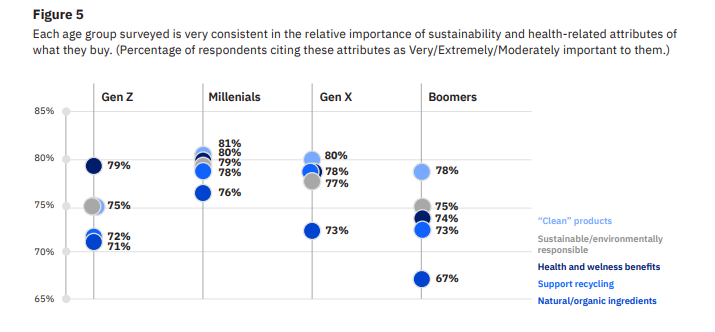
Retailers are achieving both their business goals and sustainability initiatives with the right supply chain partner in Jacksonville.
The Jacksonville Port Authority (JAXPORT) and its port partners are leading a clean fuel revolution. Northeast Florida is now a hub for Liquefied Natural Gas (LNG) – a cleaner alternate fuel source, ideal for ocean carriers looking to meet more stringent air quality regulations set by the International Maritime Organization (IMO).
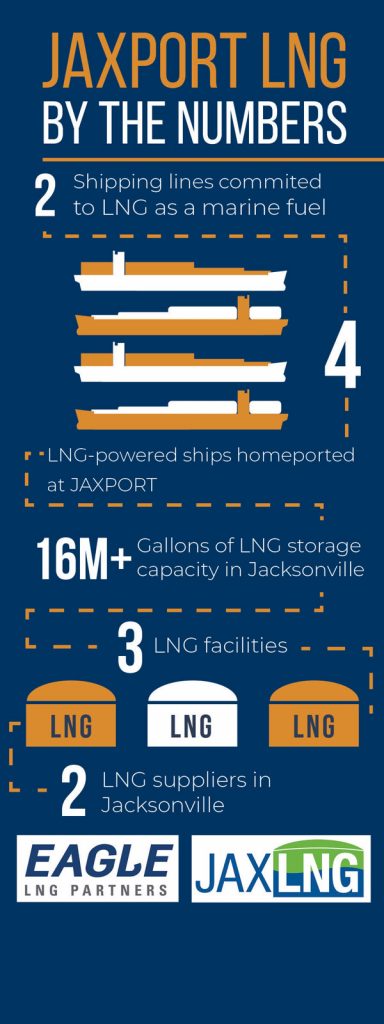
The area currently has the largest LNG bunkering operation at any U.S. port, according to an Alternate Fuels Study published by the Florida Ports Council and Florida Natural Gas Association.
With three LNG facilities currently operating and one under construction – Jacksonville is the only East Coast port with LNG fueling capabilities. This infrastructure will serve the increase in LNG-powered vessels moving retailers’ cargo around the globe. The Alternate Fuels Study reports there are more than 130 LNG-powered vessels in operation with an equal amount in new build orders.
Not only is natural gas an alternative fuel source for ocean transit, but you will also find it in intermodal transportation as well.
Regional rail line Florida East Coast Railway (FEC) locomotives are equipped with dual fuel capabilities using both diesel and LNG. The company reports its locomotives use less diesel resulting in an 80 percent reduction of Nitrogen Oxide emissions. FEC operates a network of rail lines that run from Jacksonville to Central and South Florida – delivering retailers cargo to the growing Florida market.
The trucking industry also benefits from alternate fuels. In Jacksonville, global trade and logistics provider United Parcel Service (UPS) is using trucks powered by natural gas to make last-mile deliveries for shippers. UPS operates two distribution centers in Northeast Florida serving its customer base in the Southeast US. Other trucking firms using cleaner fuels include Raven Transport, Saddle Creek Logistics Services, and Dillon Transport.
While sustainability for retailers oftentimes looks like eco-friendly packaging and socially responsible giving – there are opportunities to embrace greener alternatives throughout your supply chain. Connecting with partners that share your values is profitable in the long run.
JAXPORT offers a transportation ecosystem designed to meet retailers’ logistics needs within the context of environmental responsibility. In addition to LNG adoption, green initiatives at JAXPORT include electrified berths, state-of-the-art electric cranes and new on-terminal lighting designed to increase efficiency.
From ocean carriers running LNG-powered vessels to intermodal options delivering your product to 70 million-plus consumers living in the Southeast US – at JAXPORT, X marks the spot for sustainability in retail logistics.
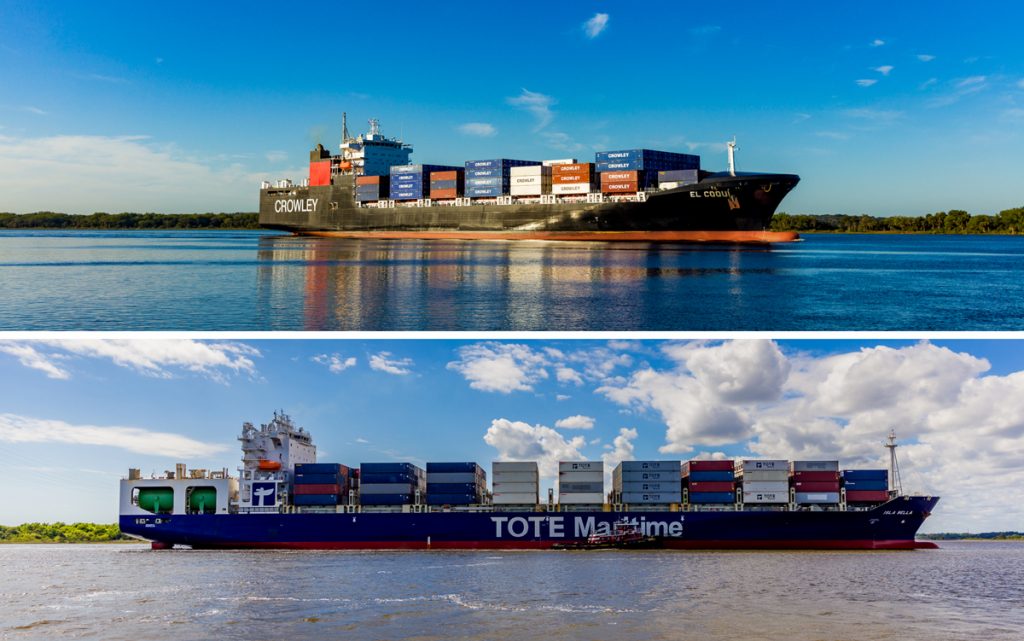
Connect with JAXPORT at RILA LINK2020 in Dallas, Texas February 23-26 to learn more about how your brand can thrive by shipping through Jacksonville.
